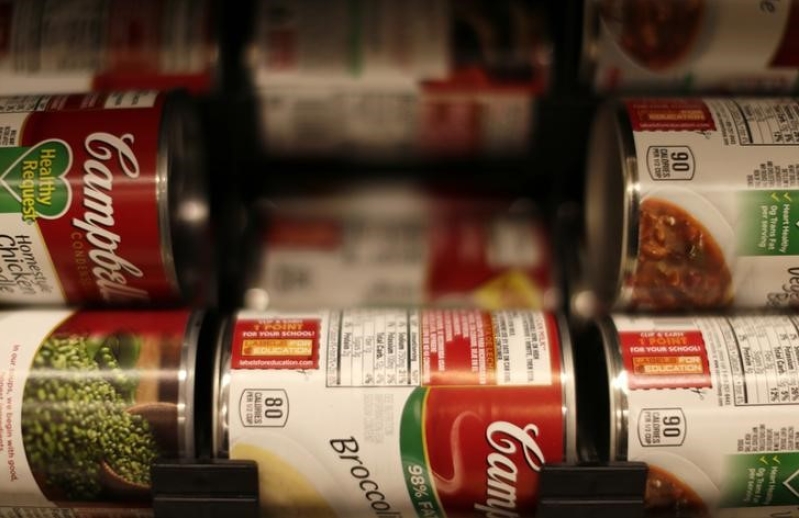
Campbell Soup Co said it will label all its U.S. products for the presence of ingredients derived from genetically modified organisms, becoming the first major food company to respond to growing calls for more transparency about contents in food.
The world's largest soup maker broke ranks with peers and said it supported the enactment of federal legislation for a single mandatory labeling standard for GMO-derived foods and a national standard for non-GMO claims made on food packaging.
The company, which also makes Pepperidge Farm cookies and Prego pasta sauces, said it would withdraw from all efforts by groups opposing such measures. (bit.ly/1OeE1Md)
Several activist groups have been pressuring food companies to be more transparent about the use of ingredients, especially GMO-derived ones, amid rising concerns about their effects onhealth and the environment.
Several big companies such as PepsiCo Inc, Kellogg Co and Monsanto Co have resisted such calls and have spent millions of dollars to defeat GMO-labeling ballot measures in states such as Oregon, Colorado, Washington and California, saying it would add unnecessary costs.
Monsanto Co said in a statement Friday that it sells seeds to farmers, and does not manufacture or sell food products from crops grown from those seeds.
The six biggest agrochemical and biotech seed companies - Monsanto, Dupont, Dow AgroSciences, Bayer CropScience, BASF Plant Science and Syngenta AG - spent more than $21.5 million to help defeat a 2012 California proposition labeling proposition, according to state election data.
However, in 2014, Vermont became the first U.S. state to pass a law requiring food companies to label GMOs on their products, which will come into effect in July.
Pro-labeling groups such as Environmental Working Group (EWG) and Just Label It cheered Campbell's move.
"We applaud Campbell's for supporting national, mandatory GMO labeling," Scott Faber, senior vice president of government affairs at EWG said.
Advocacy group Just Label It said Campbell's move was a step closer to reaching the goal of a federally crafted national GMO labeling solution.
Campbell said late on Thursday that if a federal solution is not achieved in some time, it was prepared to label all its U.S. products for the presence of ingredients that were derived from GMOs and would seek guidance from the FDA and approval by the USDA.
The Grocery Manufacturers Association (GMA), which represents more than 300 food companies opposed to mandatory GMO labeling, said it respected the rights of individual members to communicate with their customers in whatever manner they deem appropriate.
However, the GMA said it was "imperative" that Congress acted immediately to prevent the expansion of a costly patchwork of state labeling laws that would ultimately hurt consumers who can least afford higher food prices.
Kellogg and Pepsi were not immediately available to comment on Campbell's move.
Campbell said in July that it would stop adding monosodium glutamate (MSG) to its condensed soups for children and use non-genetically modified ingredients sourced from American organic farms in its Campbell's organic soup line for kids.
The company also said it would remove artificial colors and flavors from nearly all of its North American products by July 2018.






